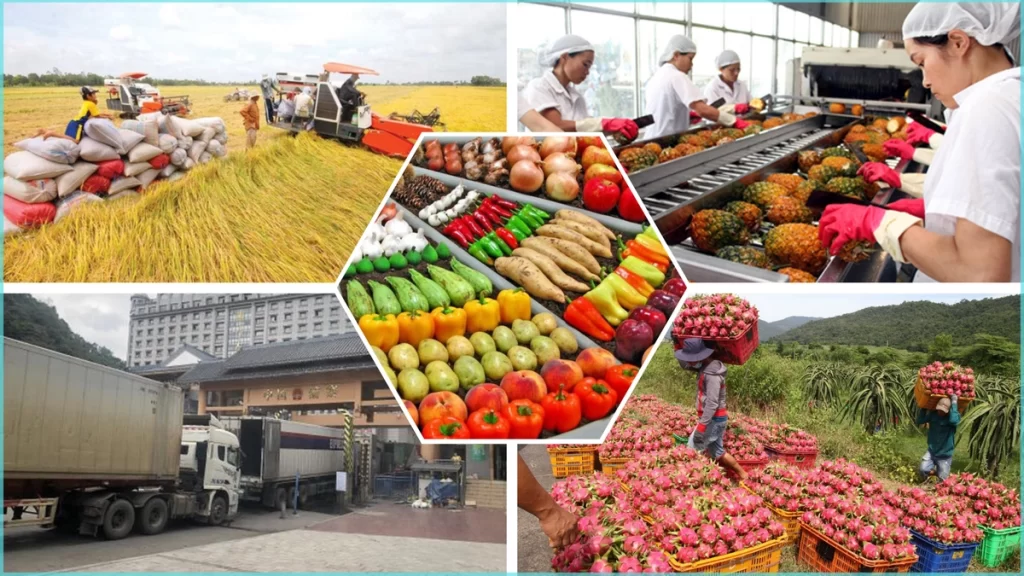Contents
Shipping of agricultural products to Australia
Currently, the Australian market is a potential market for agricultural exports. If you are looking forward to finding a reputable shipping unit to send goods to Australia, Indochina Post will be your choice!
Overview of Australia
With spectacular landscapes and a rich ancient culture, Australia is a land like no other. It is the earth’s sixth-largest country in land area and is the only nation to govern an entire continent. Australia in Brief provides an authoritative overview of Australia’s history, the land, its people and their way of life.

Agricultural Sector in Vietnam
The agricultural sector in Vietnam includes crop production, livestock, fisheries, and forestry. Vietnam’s main Agricultural products are rice, pepper, tea, coffee beans, cotton, peanuts, sugarcane, etc.

In 2022, Vietnam’s agricultural sector experienced its highest growth in recent years reaching 3.36 percent. Of this figure, farming increased by 2.88 percent, fisheries increased by 4.43 percent, and forestry increased by 6.13 percent. The export turnover of the whole industry was over US$53.22 billion. Vietnam currently exports a broad range of agricultural products all over the world. Its main exports are walnuts, coffee, and rice – accounting for just over US$5.7 billion worth of agricultural exports in 2021.
Export agricultural products to Australia
Currently, there are a number of fresh Vietnamese fruits that are exported to the Australian market. such as mango, longan, lychee, dragon fruit, and coconut.
What should you be cautious about when exporting goods to Australia?
Regarding points to note when trading with Australia, Mr. Vu Huy Phuc said that in this market, technical barriers, labeling requirements, food hygiene, and safety are very strict. Some standards are very strict and higher than the US and EU. Besides, agricultural products are also subject to great competition from other countries in the Australian market.
Many import regulations, such as tax policy and tax rates; regulations on packaging and labels; regulations on food hygiene and safety; quarantine; intellectual property rights; trademarks; business practices; etc., also require businesses to pay attention.
Agricultural products delivery to Australia in Indochina post
- Weigh the cargo and calculate the freight.
- The customer signs the delivery confirmation, and the staff signs the receipt of the goods.
- The consignment record and the invoice must be made in two copies with the signatures of the sender and receiver.
In addition, Da Nang Logistics also deliver many items to Australia.
- Dried vermicelli, vermicelli, functional foods, etc.
- Confectionery, Tet jam, red envelopes, fresh fruit, dried fruit,..
- Clothing, shoes, fabrics, many fashion items
- Cosmetics: false eyelashes, facial cleanser,…
- Vouchers, records, documents, books, and learning tools
- types of goods as samples.
- Accessories of all kinds
- Sound system, amp, and musical instruments
- Gifts, oil paintings, lacquer
- Statues, dishes, and ceramics
- In addition, there are many other extremely diverse items; contact us to learn more.
With many experiences in delivery service, Indochina Post will bring much value to customers!
Read more:

